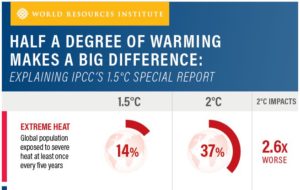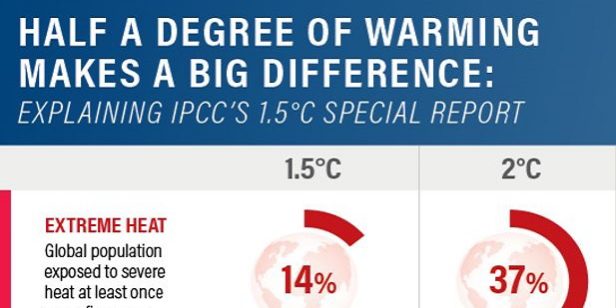
By David Seabrook.
Two significant reports from climate researchers were recently released outlining in detail the difficult challenge humanity is up against. This past October the International Panel on Climate Change (IPCC) projected that if we don’t limit global warming to 1.5oC (2.7 oF), that 2oC (3.6oF) of warming will be a lot worse for us. As described by the UN Secretary-General, “this report by the world’s leading climate scientists is an ear-splitting wake-up call to the world, it confirms that climate change is running faster than we are, and we are running out of time.” The IPCC Report received good but short-lived media attention. From a Washington Post article: ”It’s like a deafening, piercing smoke alarm going off in the kitchen. We have to put out the fire.”
One month after the IPCC report a collaboration of federal agencies issued the Fourth National Climate Assessment (4NCA). It notes that we are already experiencing harm from multiple effects of a warming world and without significant reductions in GHG emissions we should expect “substantial net damage to the U.S. economy.” This report describes significant threats to our water, health, agriculture, infrastructure and economy. It also describes how “interconnected systems are increasingly vulnerable to cascading effects that are often difficult to predict.”
These reports make it clear: we face a national (and global) emergency. Yet, we seem no closer to making difficult decisions, to taking the “unprecedented action required” (IPCC), or to making “substantial and sustained global mitigation and regional adaptation efforts” (4NCA) to avoid calamity. Why is this?
Those trained to make tough decisions in high risk situations (think military and fire commanders) know that “situational awareness” is critical to making good decisions. Without a critical mass of the public having good situational awareness about the climate emergency and our society’s vulnerable complex systems, we won’t respond appropriately.
I urge everyone to make the time to inform yourselves and to encourage others to do likewise. While the recent major reports are lengthy, you can start with the executive summaries. The IPCC report is available here, https://www.ipcc.ch/sr15/. The 4th National Climate Assessment is quite readable and includes a chapter specific to the Northwest, it can be found here: https://nca2018.globalchange.gov. Locally, the challenges we face include increased risk of wildfires and smoke, rainfall and snow pack changes, sea level rise and threats to species such as salmon.
Locally, in response to the emergency, we need to make tough decisions about how to prepare for the coming changes. Get informed and get involved. Port Townsend and Jefferson County have a joint Climate Action Committee. Local 20/20 (l2020.org) is briefing its multiple Action Groups on the latest information on the climate emergency. Working from a foundation of good situational awareness, all of us can then redouble our efforts to help build a resilient local community.
David Seabrook is a retired firefighter and works with several community organizations, including Local 20/20’s Climate Action Group.








